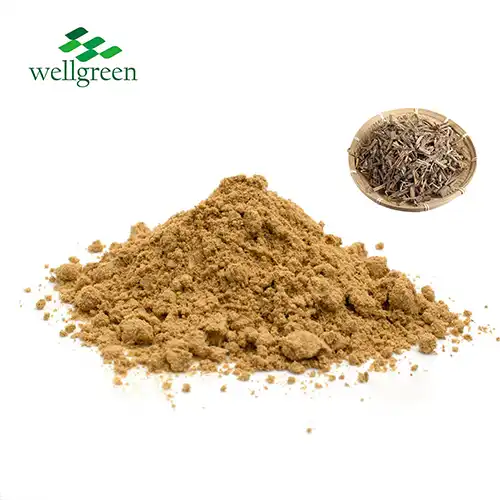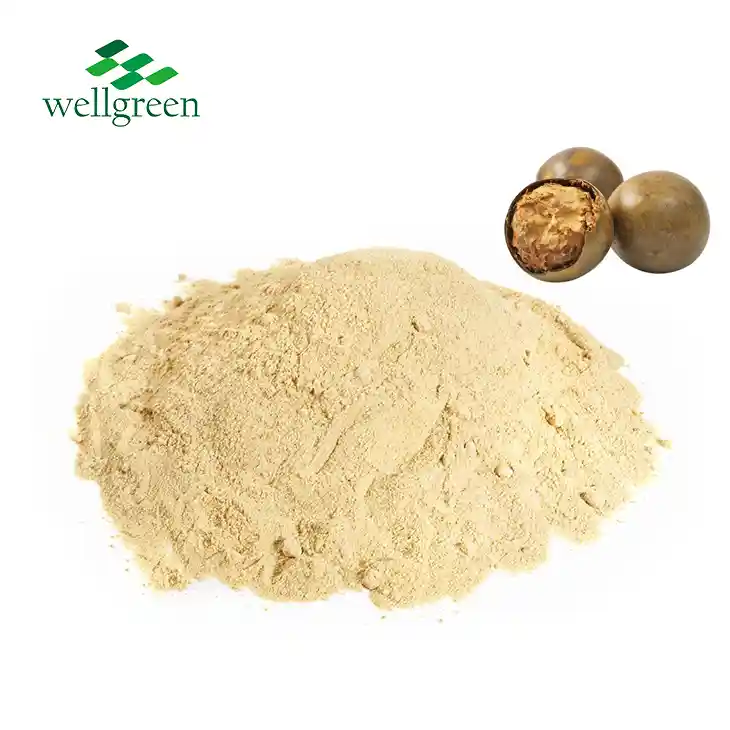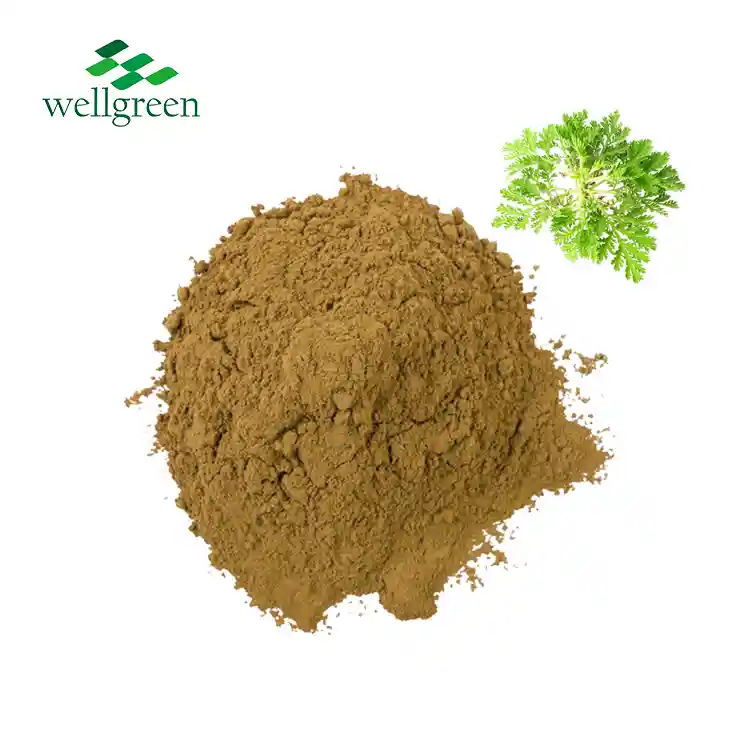Is garcinia cambogia extract safe?
2023-12-15 14:32:14
 Garcinia cambogia is a tropical fruit native to Southeast Asia and India that contains high levels of hydroxycitric acid (HCA). HCA is touted as the active ingredient responsible for garcinia cambogia’s weight loss effects. Garcinia cambogia extract diet pills and supplements boomed in popularity after being featured on the Dr. Oz show in 2012. However, questions still remain about the safety of taking garcinia cambogia extract, especially in high doses. This article examines the current research on the potential side effects and safety concerns with using garcinia cambogia for weight loss.
Garcinia cambogia is a tropical fruit native to Southeast Asia and India that contains high levels of hydroxycitric acid (HCA). HCA is touted as the active ingredient responsible for garcinia cambogia’s weight loss effects. Garcinia cambogia extract diet pills and supplements boomed in popularity after being featured on the Dr. Oz show in 2012. However, questions still remain about the safety of taking garcinia cambogia extract, especially in high doses. This article examines the current research on the potential side effects and safety concerns with using garcinia cambogia for weight loss.
Reported Side Effects
Multiple clinical trials and meta-analyses have compiled data on the side effects reported with garcinia cambogia use. The most commonly reported side effects include gastrointestinal symptoms like nausea, discomfort, or diarrhea, as well as headaches (Marquez et al, 2012; Onakpoya et al, 2011).
For example, in a major study on 135 overweight adults, 50% of those taking garcinia cambogia extract reported some GI side effects including nausea, intestinal discomfort, or diarrhea, compared to only 25% reporting these side effects in the placebo group. Headaches were reported two to three times more often in the garcinia group as well (Heymsfield et al, 1998).
In a more recent analysis of over 900 people taking garcinia cambogia supplements in placebo-controlled studies lasting 2 to 12 weeks, over 31% reported these same gastrointestinal reaction side effects (Vasques et al, 2014). While concerning at first glance, these side effect rates are quite variable between studies and may depend substantially on factors like the dose and formulation of garcinia cambogia used.
Safety For Most Healthy Adults
 While garcinia cambogia supplements undoubtedly can cause some unpleasant but relatively mild side effects like nausea or headache in some individuals, extensive research data has found garcinia cambogia does not lead to serious adverse events or pose long term health risks for otherwise healthy adults (Clouatre & Preuss, 2013; Schaller, 2003).
While garcinia cambogia supplements undoubtedly can cause some unpleasant but relatively mild side effects like nausea or headache in some individuals, extensive research data has found garcinia cambogia does not lead to serious adverse events or pose long term health risks for otherwise healthy adults (Clouatre & Preuss, 2013; Schaller, 2003).
For example, blood tests show no significant differences in clinical markers like fasting glucose or cholesterol levels between those taking garcinia cambogia versus placebos in most studies. This suggests garcinia does not negatively impact blood sugar regulation or cardiovascular health (Kim et al, 2013). Imaging tests also indicate no changes in internal organ structure or function (Qaisiya et al, 2021). Over 10 studies using daily garcinia cambogia doses ranging from 1,500 mg to 4,667 mg for up to 12 weeks have reported no severe adverse effects on measured clinical parameters or liver and kidney function (Vasques et al, 2014; Marquez et al 2012).
While the majority of evidence suggests garcinia cambogia has a reasonable safety profile for healthy individuals, high doses may be more likely to produce unwanted side effects or interact with some medications. Those with diabetes or taking statins and other drugs should avoid garcinia cambogia or exercise caution and consult their doctor first.
Dosage and Formulation Concerns
As noted, many side effects with garcinia cambogia may stem from certain supplement formulations and excessively high doses. Expert reviews suggest doses more than 2,800 mg per day in clinical studies may be pushing the upper limit for safe consumption, while typical recommended doses range from 1,000 to 2,000 mg per day (Clouatre & Preuss, 2013). Poorly formulated or impure garcinia cambogia products could also pose unpredictable toxicity risks as well (Peng et al, 2017).
Seeking reputable supplement brands following Good Manufacturing Practices (GMP) is advised, along with reviewing any independent testing confirming the potency and purity of garcinia cambogia extract on Certificates of Analysis before purchasing a product. As little as 60% HCA content may provide weight loss benefits, with dosing split throughout the day often better tolerated gastrointestinal wise according to some nutrition experts (Preuss & Dallas Clouatre, 2020). Reading labels for HCA percentage and following suggested serving sizes provides a degree of safety buffer. Combining garcinia with substantial HCA content with a balanced diet and exercise regimen optimized weight loss in studies with minimal adverse reactions reported as well (Kim et al, 2013).
Does Garcinia Cambogia Damage Liver?
Early rat studies raised alarm by showing very high doses of pure garcinia cambogia extract could induce liver inflammation and damage (Hong et al, 2016). This led to worries that HCA might harm the liver at supplemental doses. However, subsequent research has found little evidence of liver toxicity issues in human clinical studies.
Analyzing data from over 900 participants across multiple controlled trials found no differences in liver enzyme levels between those taking garcinia cambogia versus placebos (Vasques et al, 2014). Reviews of randomized studies using daily doses between 1,500mg to 4,667mg HCA for 2-12 weeks showed no severe side effects or liver function abnormalities (Marquez et al, 2012). As with any supplement, people with existing liver impairment should exercise caution with garcinia products. But for generally healthy adults, standard doses used short-term do not demonstrate liver toxicity.
Does Garcinia Affect Sleep?
While garcinia is not a stimulant, a small percentage of users do report headaches, nausea, or digestive issues which could indirectly impact sleep quality. In a meta-analysis of garcinia cambogia clinical studies, over 20% of subjects reported headaches associated with higher HCA doses above 1,500mg daily (Onakpoya et al, 2011).
Beyond just unwelcome side effects disrupting sleep, there is some debate around whether garcinia cambogia could affect serotonin pathways involved in sleep regulation as well (Clouatre & Preuss, 2013). However, evidence does not show meaningful changes in key serotonin biomarkers and reviews conclude these concerns are mostly speculative without much foundation from trials directly assessing sleep related outcomes with garcinia supplementation (Marquez et al, 2012).
 What are the negatives of garcinia cambogia?
What are the negatives of garcinia cambogia?
There are also questions around garcinia formulations and appropriate dosing protocols. Quality issues with purity and standardizing HCA concentrations between brands can make potency unpredictable (Peng et al, 2017). And some data indicates the majority of weight loss benefits are achieved with daily doses around 1,500mg to 2,800mg while higher amounts increase side effect risks (Clouatre & Preuss, 2013). Exceeding suggested doses or using subpar products could limit effectiveness or possibly contribute to other long-term safety issues as well.
Conclusion
Current research suggests garcinia cambogia extract can be reasonably safe for most healthy adults when taken properly and according to standardized supplement label suggestions. However, high doses above 2,800 mg daily, especially if using low-quality or impure extract forms, raise the risk of gastrointestinal issues like nausea or diarrhea as well as headaches. Seeking reputable brands following safe manufacturing guidelines and taking modest HCA doses minimized side effects in studies. Those with medical conditions or taking prescription medications should remain cautious with using garcinia until more definitive long-term safety data become available, and always consult a doctor first.
WELLGREEN is an innovation-driven manufacturer of herbal extracts since 2011 certified by ISO9001:2015, ISO22000, HALAL, KOSHER, HACCP, and Organic Certificate. If you need Garcinia Cambogia Extract Powder, please contact us immediately, E-mail:wgt@allwellcn.com We can supply customized service as per your request.
References:
Clouatre, D.L. & Preuss, H.G. (2013). Safety of long-term use of Hoodia gordonii and Garcinia cambogia in humans: Facts, uncertainties, and current perspectives. Int J Med Sci. 10(1):1–5.
Heymsfield, S.B. et al (1998). Garcinia cambogia (hydroxycitric acid) as a potential antiobesity agent: a randomized controlled trial. JAMA, 280(18):1596-600.
Kim, J.E. et al (2013). Does Glycine max leaves or Garcinia Cambogia promote weight-loss or lower plasma cholesterol in overweight individuals: a randomized control trial. Nutrition journal, 5(12):94.
Marquez, F. et al (2012). Evaluation of the safety and efficacy of hydroxycitric acid or Garcinia cambogia extracts in humans. Critical reviews in food science and nutrition, 52(7), 585–594.
Onakpoya, I. et al (2011). The Use of Garcinia Extract (Hydroxycitric Acid) as a Weight loss Supplement: A Systematic Review and Meta-Analysis of Randomised Clinical Trials. Journal of obesity, 2011, 509038.
Peng, C.H. et al (2017). Adulteration of dietary supplements by the illegal addition of synthetic drugs: A review. Comprehensive Reviews in Food Science and Food Safety, 16(1), 43-62.
Preuss, H. G., & Dallas Clouatre. (2020). Garcinia cambogia Desr. (Guttiferae) featuring HCA (hydroxycitric acid) as an antiobesity agent. Phytomedicine, 29, 153260.
Qaisiya, M. et al (2021). Comprehensive review on therapeutic benefits of garcinia species in traditional and modern medicine: Upshots and lacunae for future directives. Biomed Pharmacother, 144, 112252.
Schaller, J. L. (2003). Garcinia cambogia for weight loss. JAAPA, 16(8), 40-2.
Vasques C.A. et al (2014). Evaluation of the pharmacotherapeutic efficacy of Garcinia cambogia plus Amorphophallus konjac for the treatment of obesity. Phytotherapy research : PTR, 28(9), 1351–1358.






